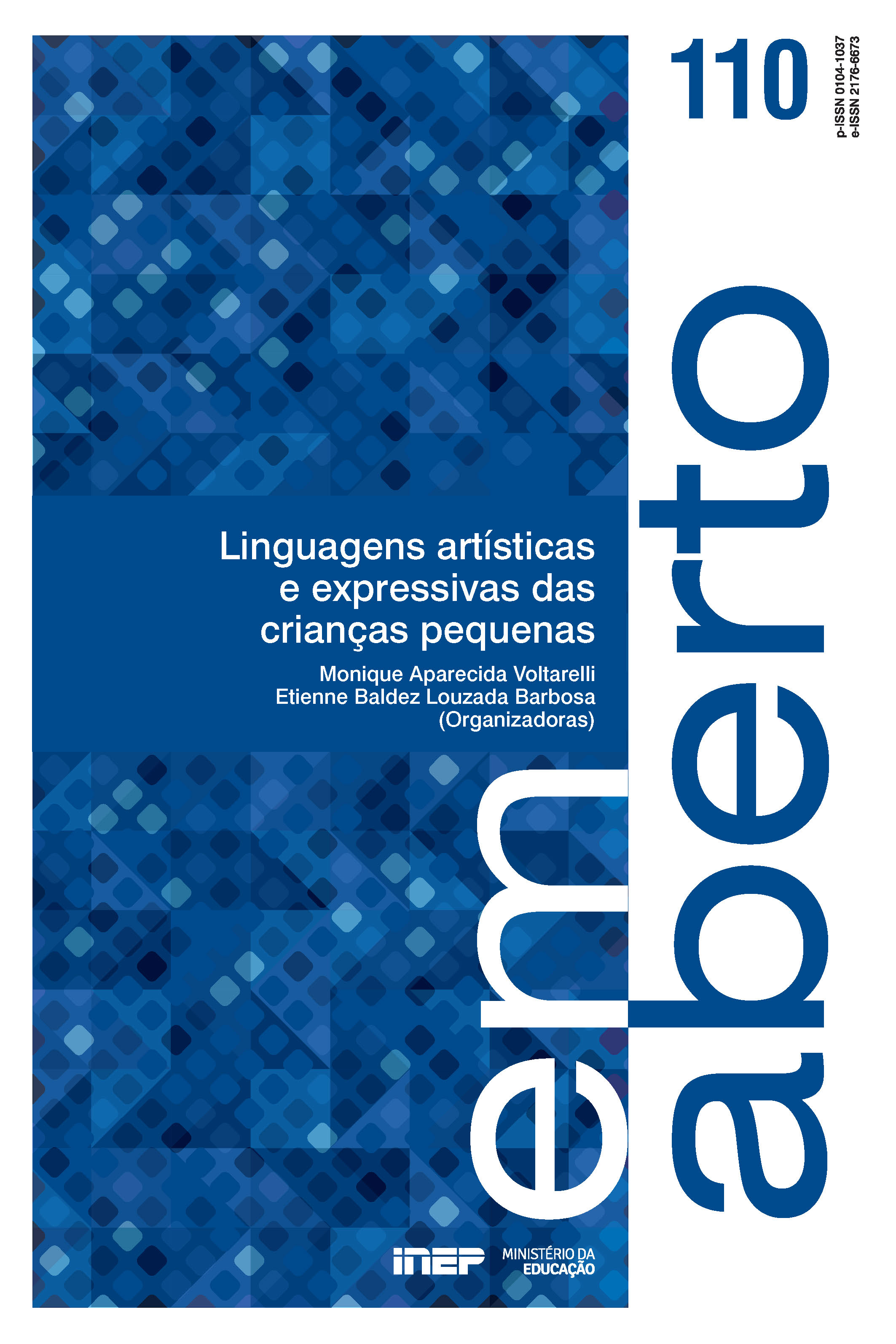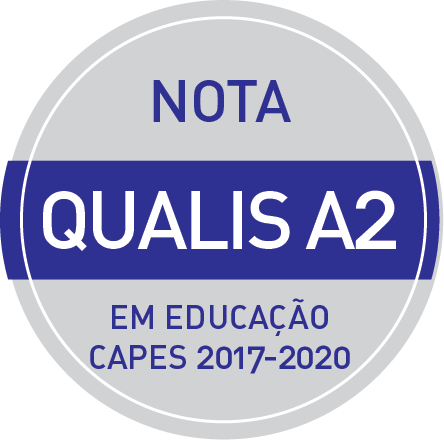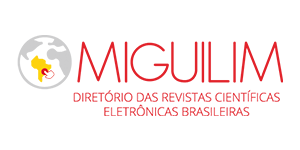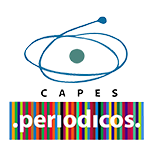Small children and arts: expressions and significations
Abstract
This article explore the terms artistic languages and expressive languages, aiming to reflect about small children and their learning paths in the languages of art in varied contexts. It adopts the concept of childhood based on studies that recognize the investigative and creative potential of children, as well as their role in the processes of knowledge construction in the field of art. There is an emphasis on the importance of pedagogical approaches that encourage the exploration of diverse materials and embrace children’s creations, which result in music, scenes, visual arts, and dances. These expressions, in turn, make us aware of the meaning children attribute to these artistic actions. Beyond the reflections about the duality of these terms, when it comes to childhood and young children, it is essential to debate about what they have to say about themselves through all languages they use to express. These languages hold interests, feelings, ideas, and thoughts that reveal their childhoods. This article concludes that children’s artistic initiation must happen through actions of learning how it is done and inventing new ways of doing, through an art teaching that think of childhood as a time for investigation and creation.
Downloads
References
ABRAMOVICZ, A.; OLIVEIRA, F. A infância analisa a educação básica. Acta Scientiarum Education, Maringá, v. 35, n. 2, p. 293-300, jul./dez. 2013.
ARAÚJO, G. A. Poética(s): a criação artística em fricção com o(s) tempo(s) presente(s). Cena: Periódico do Programa de Pós-Graduação em Artes Cênicas, Porto Alegre, n. 23, p. 111-120, 2017. Disponível em: <https://seer.ufrgs.br/cena/article/view/75024>. Acesso em: 5 ago. 2020.
BERLE, S. Infância e linguagem: educar os começos. 2013. 116 f. Dissertação (Mestrado em Educação) – Programa de Pós-Graduação em Educação, Universidade de Santa Cruz do Sul, Santa Cruz do Sul, 2013.
CASSIRER, E. Ensaio sobre o homem: introdução a uma filosofia da cultura humana. São Paulo: Martins Fontes, 1994.
CUNHA, S. M. da. Crianças fazendo arte: processos de criação artística e formação profissional docente para a educação infantil. Poiésis: Revista do Programa de Pós- Graduação em Educação, Tubarão, v. 12, n. 21, p. 235-250, jan./jun. 2018.
CUNHA, S. R. V. da. A importância das artes na infância. In: CUNHA, S. R. V. et al. (Org.) As artes no universo infantil. Porto Alegre: Editora Mediação, 2012.
FARACO, C. A. Aspectos do pensamento estético de Bakhtin e seus pares. Letras de Hoje, Porto Alegre, v. 46, n. 1, p. 21-26, jan./mar. 2011.
KOHAN, W. O. A escola como experiência. [Entrevista concedida a] Ivan Rubens Dário Júnior e Luciana Ferreira da Silva. RevEduc: Revista Eletrônica de Educação, São Carlos, v. 12, n. 1, p. 298-304, jan./abr. 2018.
LÓPEZ, M. E. Um mundo aberto: cultura e primeira infância. São Paulo: Instituto Emilia, 2018.
PASSOS, J. C. Arte como discurso ou a discursividade nas linguagens artísticas. Cena em Movimento, Porto Alegre, n. 2, p. 1-18, 2011. Disponível em: . Acesso em: 30 jan. 2020.
SANTAELLA, L. Matrizes da linguagem e pensamento: sonora visual verbal: aplicações na hipermídia. 3. ed. São Paulo: Fundação de Amparo à Pesquisa do Estado de São Paulo, 2013.
SANTAELLA, L. O que é semiótica. São Paulo: Brasiliense, 1983. (Coleção Primeiros Passos, n. 103).
SILVEIRA, P. D.; AXT, M. Mikhail Bakhtin e Manoel de Barros: entre o cronotopo e a infância. Bakhtiniana: Revista de Estudos do Discurso, São Paulo, v. 10, n. 1, p. 176-192, jan./abr. 2015. Disponível em: <http://revistas.pucsp.br/bakhtiniana/article/view/20845>. Acesso em: 25 jul. 2020.
SWANWICK, K. Ensinando música musicalmente. São Paulo: Moderna, 2003.
Copyright (c) 2021 Em Aberto

This work is licensed under a Creative Commons Attribution-NonCommercial 4.0 International License.
These are the terms of this Copyright Notice:
- I declare that I permanently forfeit in favor of the National Institute of Educational Studies and Research (INEP) all rights related to:
-
- editing, publication, reproduction, and distribution of the work;
- publication through digital and electronic media;
- translation of the work to any language;
- updating, re-printing, adaptation, and compression of the work;
- uploading of work in the publishing platform of INEP;
- divulging complete or parts of work through the World Wide Web (internet), whether in Brazil or foreign countries;
- authorization of third parties to execute any of the acts mentioned before.
- I explicitly declare that I am solely responsible for the opinions expressed in the work, and its publication does not violate the rights of third parties.
- I declare that the nature of said work is one of pro bono publico and, as such, I forfeit the right to any compensation regarding ownership rights granted.
- I authorize spelling and grammatical review of the manuscript, provided that the content and opinions therein remain unchanged.












